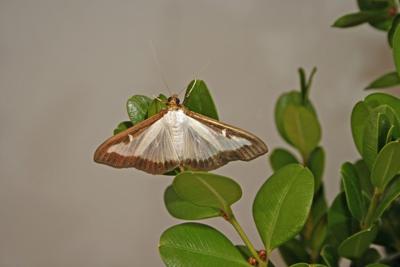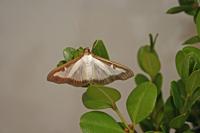DELAWARE - The Delaware Department of Agriculture has confirmed the presence of a box tree moth in New Castle County, marking the first time the invasive pest has been found in the area. The moth was detected during routine trap inspections along the New Castle County-Kent County border.
The box tree moth, Cydalima perspectalis, is a federally regulated pest known for its ability to severely damage or kill boxwood shrubs, which are widely used in landscaping.
This discovery comes a little over a year after Delaware’s first confirmed sighting of the insect in Kent County in July 2024. The moth was first reported in the United States in 2021 in New York.
“We continue to work closely with our partners at the U.S. Department of Agriculture and University of Delaware extension to monitor this invasive pest,” said Jeffrey Brothers, Delaware Department of Agriculture’s Plant Industries Administrator. “A box tree moth caterpillar can quickly defoliate boxwoods and remain active until September or October. Homeowners and nurseries should be on the lookout for signs of damage to their plants.”
The caterpillars are particularly destructive. They grow up to 1.5 inches in length and are identifiable by their lime-green bodies, black stripes, white spots, black heads and noticeable webbing, said DDA. In heavy infestations, the caterpillars can completely strip boxwood leaves and move on to the bark, often killing the plant.
The adult moth has white wings edged in brown and is nocturnal. It is sometimes confused with the melonworm moth, another pest found in the region.
What locals can do
People who live in Delaware can help prevent the spread of the moth by regularly checking their boxwoods for brown or skeletonized leaves, excessive webbing, or defoliation.
Homeowners and gardeners can contact the Delaware Cooperative Extension Master Gardeners via the Garden Helpline:
New Castle County: 302-831-8862
Kent County: 302-730-4000
Sussex County: 302-831-3389
For heavy infestations, experts recommend cutting the infested plant at the base. All plant debris should be double-bagged and thrown away to reduce the risk of further spread DDA.
Nursery owners are advised to monitor their plants closely and report any detections to the Department of Agriculture at DDA_PlantPests@delaware.gov.
More information about the moth and how to manage it is available at the USDA’s website and through University of Delaware Cooperative Extension.







